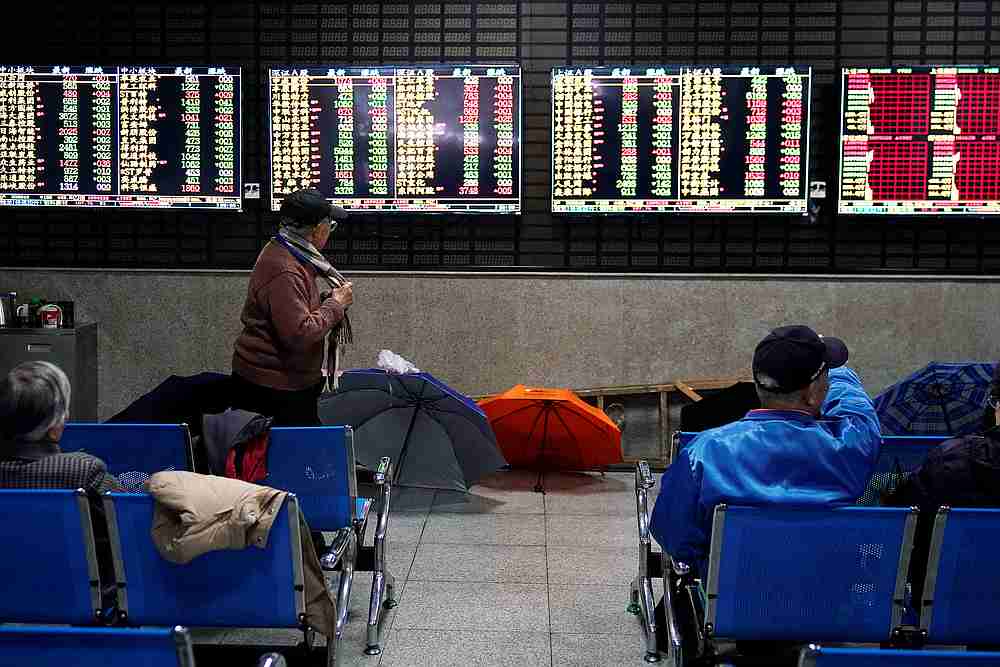TOKYO July 16 — Asian shares and US stock futures fell today, weighed down by concern about deteriorating US-China relations and the economic cost of a resurgence in coronavirus infections that is prompting some governments to reimpose containment measures.
Even news that China’s economy rebounded more than expected in the second quarter from a record contraction was not enough to pull regional equities out of the red.
European markets looked set to follow Asia lower, with Euro Stoxx 50 futures falling 0.83 per cent, German DAX futures down 0.73 per cent, and FTSE futures off 0.53 per cent.
MSCI’s broadest index of Asia-Pacific shares outside Japan slid by 1.18 per cent, while Tokyo’s Nikkei fell 0.74 per cent. US S&P 500 e-mini stock futures declined by 0.43 per cent.
Shares in China fell 1.59 per cent and Australian stocks shed 0.9 per cent after the country’s jobless rate jumped to the highest since the late 1990s. Shares in Hong Kong and Seoul also fell.
Oil futures also declined after Opec and its allies agreed to scale back output cuts, renewing concerns over excess supply.
Risk appetite took a hit due to worries about a wide-ranging dispute between the United States and China over the control of advanced technologies and the protection of civil liberties in Hong Kong.
A second wave of coronavirus infections is also triggering a return to restrictions on business and personal activity that threaten to impede economic recoveries.
“The upside in financial markets is limited by the visible increase in coronavirus infections and tension between the world’s two economic giants,” said Masayuki Kichikawa, chief macro strategist at Sumitomo Mitsui Asset Management Co
“However, the downside is limited due to very low interest rates and a brighter outlook for China’s economy.”
China’s economy expanded by a better-than-expected 3.2 per cent in the second quarter from a year earlier, returning to growth as lockdown measures ended and policymakers stepped up stimulus.
But its recovery is still uneven. Separate data showed China’s industrial output beat expectations in June, but retail sales unexpectedly fell again, suggesting consumer demand remains weak.
US Secretary of State Mike Pompeo yesterday said the United States would impose visa restrictions on Chinese firms like Huawei Technologies Co Ltd that he accused of facilitating human-rights violations. President Donald Trump’s administration is also expected to take action in coming weeks to address perceived security risks posed by TikTok and WeChat, two popular Chinese mobile apps, a White House official said yesterday.
The moves would be the latest salvo in a dispute between Washington and Beijing that has unsettled markets.
Investors are also worried about jumps in coronavirus cases in the United States, Australia, and Japan.
On Wall Street the S&P 500 gained 0.91 per cent yesterday, boosted by hopes for a vaccine and a strong quarterly report from Goldman Sachs, but those gains failed to lift Asian stocks.
US crude fell 0.78 per cent to US$40.88 (RM174.58) a barrel. Brent crude fell 0.62 per cent to US$43.52 per barrel following plans from Opec and its allies to ease supply curbs.
In the currency market the Australian dollar, the New Zealand dollar, and the Chinese yuan all fell against the US dollar amid rising risk aversion. — Reuters






















